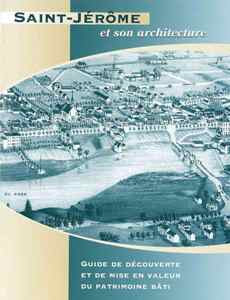- Saint-Hippolyte (population 7,219 in 2006 according to Statistics Canada) receives a grant of $600,200 for the construction of a library.
- Nouvelle (population 1815 in 2006 according to Statistics Canada) has inaugurated the premises of its new library March 12.
Excerpt from the press release announcing the opening in Nouvelle:
The grant comes from the Québec government comes from the Plan québécois des infrastructures, announced in November 2007. Let us recall that the cultural component of this plan will enable the investment of 1.2 billion dollars through to 2013. Thanks to the participation of partners, it is expected to generate total investments valued at over $ 2 billion. These funds will enable the government to accommodate a larger number of projects under its current programs and to contribute more particularly, as the investment announced today, to city and regions throughout Québec.Meanwhile, in Brownsburg-Chatham, we look at the parade.





